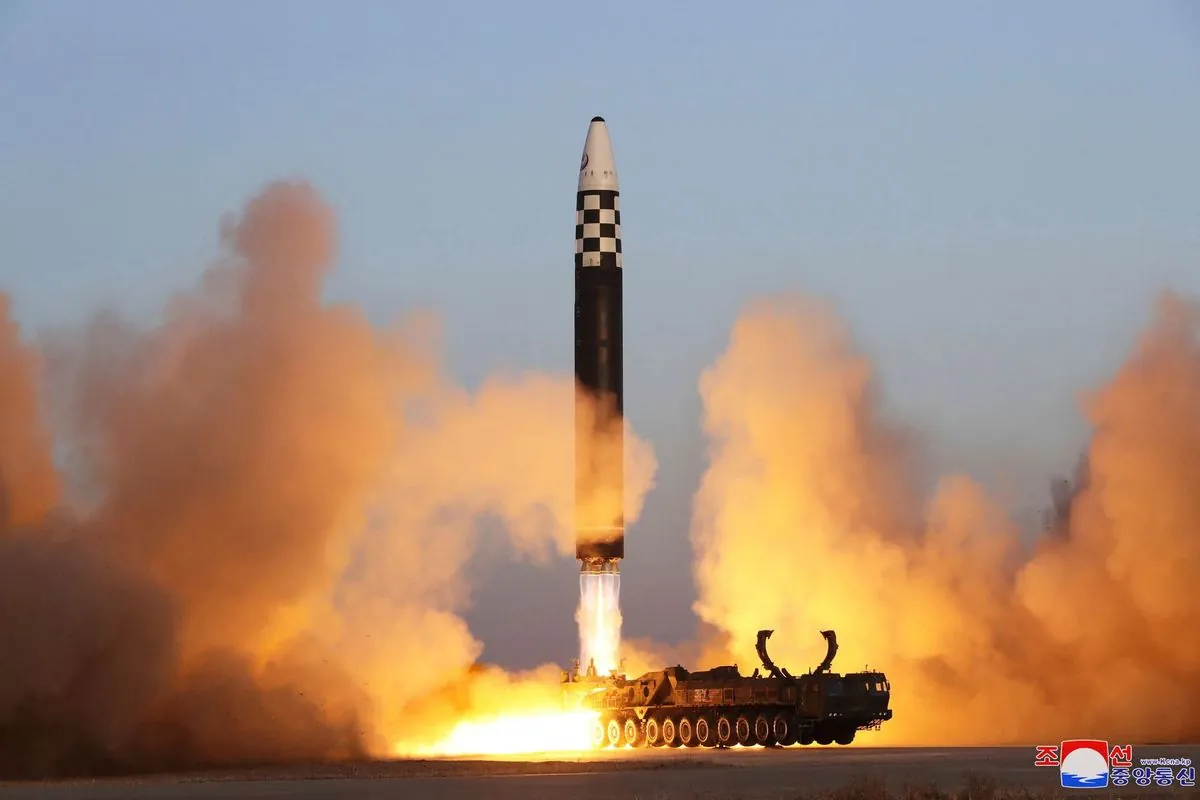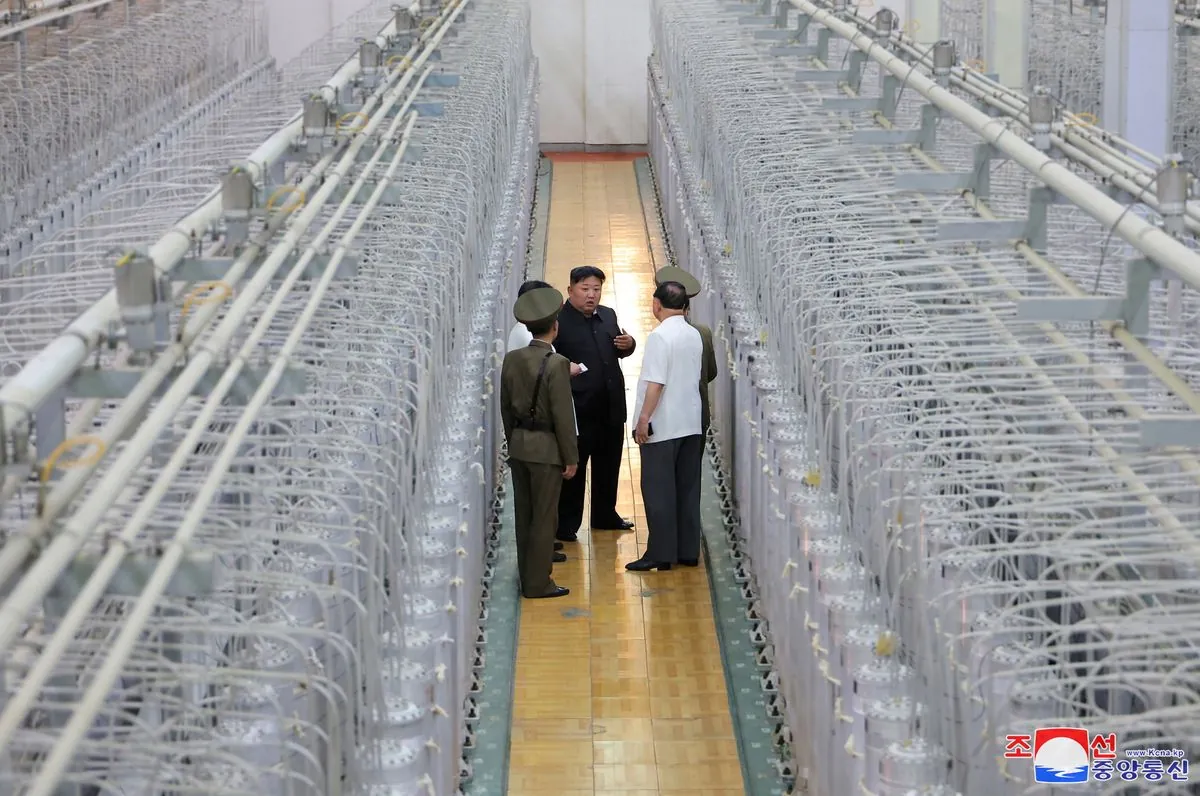North Korea Launches Ballistic Missile Amid Rising Tensions
Japan detected a North Korean ballistic missile launch, escalating regional tensions. This follows Pyongyang's recent display of uranium enrichment capabilities and calls for nuclear program expansion.

Japan's military reported the detection of at least one ballistic missile launch from North Korea on September 18, 2024, marking another escalation in the ongoing tensions with the United States and neighboring countries.
This launch comes approximately a week after North Korea provided an unusual glimpse into a classified uranium enrichment facility, demonstrating its defiance against international pressure. Concurrently, Kim Jong Un, the country's leader, has been advocating for a swift expansion of the nuclear weapons program.
Japan's Defense Ministry initially provided limited information about the launch. The country's coast guard issued a warning to vessels about potential falling objects, indicating that the missile was believed to have landed in the sea. Japanese media outlets reported that the projectile likely landed outside Japan's exclusive economic zone.

The recent missile test is part of a broader pattern of military demonstrations by North Korea. Since Kim Jong Un assumed leadership in 2011, the country has conducted over 100 missile tests, significantly advancing its ballistic missile capabilities. This aggressive stance aligns with North Korea's "Songun" or "military-first" policy, which prioritizes the armed forces in state affairs.
North Korea's nuclear ambitions have a long history, dating back to the 1950s when the program began with Soviet assistance. The country conducted its first nuclear test in 2006 and has since carried out a total of six such tests. In 2003, North Korea withdrew from the Nuclear Non-Proliferation Treaty, further isolating itself from the international community.
The United Nations Security Council has imposed sanctions on North Korea since 2006 in response to its nuclear activities. Despite these measures, the country has continued to develop its nuclear arsenal. As of 2023, experts estimate that North Korea possesses between 20 to 30 nuclear warheads.
The Yongbyon Nuclear Scientific Research Center serves as the primary hub for North Korea's nuclear operations. The country has claimed to have developed advanced weapons, including a hydrogen bomb, though these assertions are often met with skepticism from international observers.
North Korea justifies its nuclear program as a necessary deterrent for self-defense. However, the international community, particularly neighboring countries and the United States, views the program as a significant threat to regional stability and global security.
As tensions continue to rise, diplomatic efforts to address the situation remain challenging. The ongoing missile tests and nuclear developments underscore the complex nature of the geopolitical landscape in Northeast Asia, with implications extending far beyond the region.


































